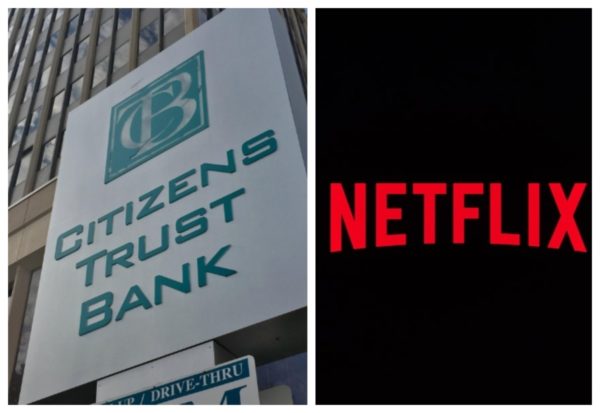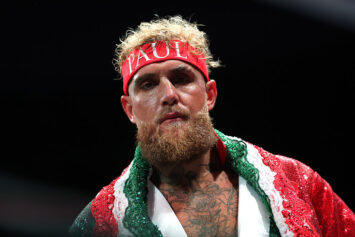Netflix has announced that it fulfilled its pledge to move $100 million of its cash holdings into Black-owned banks. The streaming giant said the move is part of its effort to close the racial wealth gap.

Netflix Pledges $100 Million to Black-Owned Banks After Summer 2020
After a volatile summer of 2020 that was full of racial justice protests, many American corporations promised to invest in Black-owned banks and businesses. Netflix pledged to allocate 2 percent of its cash holdings to banks owned by African-Americans. Netflix explained the uphill battle facing Black banks was getting funding, the streaming giant said in a statement last summer.
“According to the FDIC, banks that are Black-owned or led represent a mere one percent of America’s commercial banking assets. This is one factor contributing to 19 percent of Black families having either negative wealth or no assets at all — more than double the rate of white households — according to the U.S. Federal Reserve,” said Netflix.
There are 42 Black-owned financial institutions in the U.S., according to Fundera. This includes credit unions, which by definition are member-owned cooperatives. The number of Black-owend banks has continued to dwindle over the past few decades.
Black-owned banks are crucial to providing loans and funding to African-American customers and businesses in their communities. The Federal Reserve of St. Louis noted that in 2019, 38 percent of Black-owned business owners felt that they felt discouraged from filing for loans because they feel the loan amount will be too small. Black banks often provide funding to African-American entrepreneurs that other banks are too hesitant to give.
“Black banks have been fighting to better their communities for decades but they’re disadvantaged by their lack of access to capital. The major banks, where big multinational companies including ours keep most of their money, are also focusing more on improving equity, but not at the grassroots level these Black-led institutions can and do. So we wanted to redirect some of our cash specifically toward these communities, and hope to inspire other large companies to do the same with their cash deposits,” added Netflix.
As part of Netflix’s $100 million pledge, the streaming company was also allocated to organizations that help to increase Black homeownership. The funds were disbursed as follows:
- $10 million deposited to Los Angeles- based OneUnited Bank
- $10 million deposited to Black-owned Hope Credit Union that operates in the South
- $25 million invested as funding to establish the Black Economic Development Fund to invest in Black banks and businesses
- $10 million to the Change Company to help increase Black homeownsership
- $20 million to the Calvert Impact Capital’s Community Investment Note to support housing development projects for African-Americans
Chase Pledges to Invest In Black-Owned Banks Amid Funding Boom
In addition to Netflix, many major banks also pledged to give invest in banks owned by African-Americans. JP Morgan Chase pledged to invest $60 million in four Black-run banks in September. That’s in addition to the $40 million the bank invested in four African-American-owned banks in February. Brian Lamb, the global head of diversity and inclusion at Chase, told American Banker that the summer of 2020 made the bank re-assess how Chase could empower Black-owned banks.
“There’s no doubt we needed to do an assessment on what more we could do as a firm. I think we took the opportunity in the summer of 2020 to really do that assessment internally,” said Lamb.
Chase launched an investment product specifically to support Black-owned banks, Bloomberg reported. The bank will offer a special class of shares offered across its money market funds. The bank also made equity investments in four Black-owned banks — The Harbor Bank of Maryland, Liberty Bank and Trust, M&F Bank, and Unity National Bank. J.P. Morgan also vowed to share assets and fees with the banks and make an endowment of 12.5 percent of the annual revenue collected in management fees.
“We’re creating another revenue stream for them,” Lamb told Bloomberg, adding that the money will help “drive prosperity into the very communities that they’re looking to serve.”
The country’s biggest banks have been under escalating pressure to help fix race-based economic gaps, according to Bloomberg. The death of George Floyd by police and the ensuing protests made Black-owned banks part of the conversation. Black-owned banks now total just 18, down from 48 over the past 20 years.
Chase is one of the many organizations investing money into Black-owned banks. The National Bankers Association reports that $150 million has been invested in Black-owned banks since the summer of 2020.
Funding from Corporations Helps Black Banks Invest in Communities
The National Bankers Association’s board chairman Robert E. James III told CNN Business that the funding from big businesses like Chase and Netflix will give more financial security to Black-owned banks’ surrounding neighborhoods.
“Our banks can now leverage that into $1.5 billion to serve minority communities,” said James.
Citizens Trust Bank is a bank that received a capital infusion from Chase. CEO Cynthia Day told American Banker that the funds from Chase will enable the bank to give more loans to small businesses.
“We anticipate increasing our small-business lending significantly over the next couple of years,” she said.
Investments in banks like Citizens Trust will enable Netflix to not only gain money from Black subscribers but help Black-owned banks give back to their communities and fund businesses in the future. Aaron Mitchell, HR director of Netflix, said that Netflix’s $100 million commitment to African-American banks will empower Black communities.
“More capital moving into these institutions means more home and small-business loans, resulting in more opportunities for Black communities,” said Mitchell.




